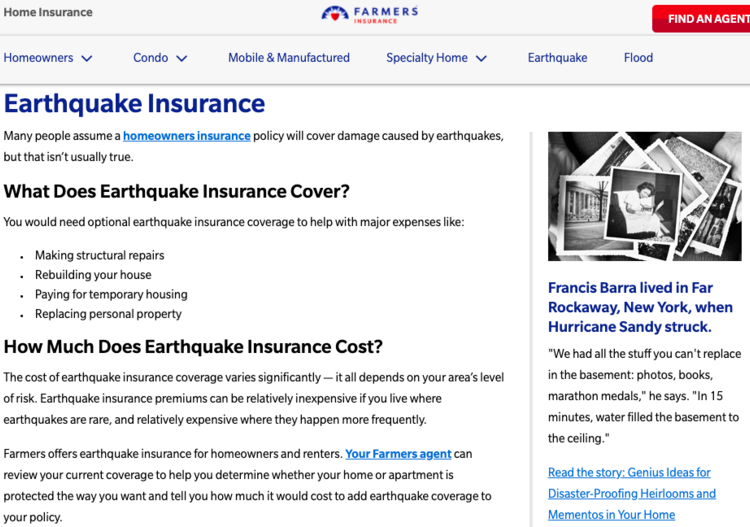Finding the best pet insurance Florida offers can be challenging, especially for senior pets. Many believe pet insurance is only for young, healthy animals however, the rising cost of veterinary care in Florida makes insurance crucial for older pets. This guide compares leading providers to help you find a plan that adequately addresses the unique health needs and financial realities of insuring senior pets in the Sunshine State.
Toc
- 1. Understanding the Unique Needs of Senior Pets
- 2. Top Pet Insurance Providers in Florida: A Comparison
- 3. Related articles 01:
- 4. Related articles 02:
- 5. Current Trends in Pet Insurance
- 6. Factors Affecting Pet Insurance Premiums in Florida
- 7. Finding the Best Pet Insurance for Your Older Pet: Practical Tips
- 8. Additional Resources and Considerations
- 9. Conclusion
Understanding the Unique Needs of Senior Pets

When it comes to securing the best pet insurance in Florida, understanding the specific challenges associated with insuring older pets is vital. These challenges can significantly impact your choices and the financial wellbeing of your furry family members.
Higher Veterinary Costs for Senior Pets
The cost of veterinary care in Florida has been on the rise, particularly for senior pets. As pets age, they become more susceptible to various health issues, necessitating more frequent veterinary visits and specialized treatments. For instance, common conditions such as arthritis, diabetes, and even cancer can lead to thousands of dollars in medical bills. In bustling urban areas like Miami and Tampa, these expenses can be even higher, reinforcing the importance of investing in pet insurance.
For example, treatment for osteoarthritis in a senior dog in Florida might involve regular pain management medication (such as gabapentin or NSAIDs), physical therapy, and potentially surgery for joint replacement. These treatments can easily exceed $5,000 annually. Similarly, managing diabetes in a senior cat often requires regular blood glucose monitoring, insulin injections, and specialized diets, adding up to several thousand dollars per year. The cost of cancer treatment, a sadly common occurrence in older pets, can be significantly higher, often reaching tens of thousands of dollars depending on the type of cancer and the chosen treatment plan.
Veterinary costs can vary widely depending on the type of treatment required. For example, routine check-ups may cost anywhere from $50 to $150, while specialized treatments can run into the thousands. According to a recent survey, pet owners in Florida spend an average of $1,200 annually on veterinary care for their pets, with older pets often incurring even higher costs due to their increased health risks. Therefore, having a robust pet insurance policy can help mitigate these financial burdens.
Impact of Pre-existing Conditions on Coverage Options
Another significant factor affecting pet insurance for older pets is the prevalence of pre-existing conditions. Insurance companies typically define a pre-existing condition as any health issue that was present before the policy was initiated or during the waiting period. For senior pets, this often includes chronic ailments that could limit the types of coverage available. Consequently, pet owners must be vigilant about understanding how these conditions can affect their policy options.
Many insurers will not cover treatments related to pre-existing conditions, which can be a major drawback for older pets. For instance, if your pet has been diagnosed with arthritis before you purchase a policy, most companies will exclude any treatment related to that condition from your coverage. This can leave pet owners in a difficult position, facing significant out-of-pocket expenses for necessary treatments.
Most pet insurance providers have waiting periods, typically ranging from 14 to 30 days for accidents and several months for illnesses. During this waiting period, any condition that manifests itself is considered pre-existing and will likely be excluded from coverage. This makes early enrollment even more crucial for senior pets, as they are more likely to have existing conditions.
Age Restrictions Imposed by Many Pet Insurance Companies
Age restrictions are a common hurdle faced by pet owners seeking insurance for older pets. Many insurance providers impose age limits on their policies, which can leave owners scrambling to find suitable coverage. Some companies may refuse to insure pets over a certain age or may offer significantly limited options. Thus, early enrollment becomes crucial; obtaining a policy while the pet is still young can help circumvent these limitations.
Some insurers might not offer coverage for pets over a certain age, often around 10 years, while others may have stricter policies. This can lead to a situation where pet owners who have not secured insurance for their pets earlier in life find themselves unable to get coverage when they need it most. It’s essential to review the age restrictions of each policy before making a decision.
Importance of Early Enrollment
The most effective strategy for pet owners is to enroll their pets in insurance plans while they are still young and healthy. Early enrollment can help avoid complications related to pre-existing conditions and offers peace of mind as pets grow older. By securing a policy early, owners can ensure their pets receive comprehensive care throughout their lives, minimizing financial stress.
Moreover, early enrollment often results in lower premiums, as younger pets are less likely to require extensive medical care. Insurers typically offer better rates for younger pets, which can lead to significant savings over time. Additionally, policies purchased early may have fewer exclusions and limitations, providing more comprehensive coverage as the pet ages.
However, it’s important to note that some pet owners may face financial constraints that make early enrollment difficult. If a pet owner adopts a senior pet, enrolling them in a policy may be a significant financial burden, especially if the pet already has pre-existing conditions. In such cases, carefully evaluating the pet’s health status and potential costs versus the benefits of insurance is crucial.
Top Pet Insurance Providers in Florida: A Comparison
When searching for the best pet insurance in Florida, it is essential to compare various providers to find the right fit for your pet’s unique needs. Below is a detailed analysis of some of the top pet insurance companies available.
Lemonade Pet Insurance
Coverage:
Lemonade is known for its flexible pet insurance policy that covers both accidents and illnesses. Pet owners can customize plans to fit their budget and their pet’s specific needs. A standout feature of Lemonade is its preventative care package, which covers routine expenses like vaccinations and wellness checks.
Claims Process:
Many customers have praised the user-friendly claims process, noting that reimbursements are typically processed quickly.
Pros and Cons:
However, it’s important to keep in mind that premiums can vary based on the pet’s age and breed, which may be a significant consideration for owners of older pets. Lemonade’s policies also allow for a unique “Giveback” feature, where unused premiums are donated to a charity of the policyholder’s choice. This innovative approach has garnered positive attention and aligns with the values of many pet owners who are passionate about animal welfare.
Trupanion Pet Insurance
Coverage:
Trupanion is a well-regarded provider known for its comprehensive coverage options, particularly for older pets. They cover a wide range of medical expenses, including surgeries and diagnostic tests, with no payout limits.
Claims Process:
Their reimbursement model operates on a percentage basis, meaning pet owners can receive up to 90% of their veterinary bills back.
Pros and Cons:
One of the advantages of Trupanion is its direct payment option, allowing veterinary clinics to receive payment directly from the insurer at the time of service. This can alleviate the financial burden on pet owners, as they won’t have to pay out-of-pocket and wait for reimbursement. However, it’s worth noting that Trupanion’s premiums can be higher than average, especially for older pets, making it crucial for owners to assess their budget accordingly.
Healthy Paws Pet Insurance
Coverage:
Healthy Paws has gained popularity among pet owners, especially those with senior pets. The company provides extensive coverage for accidents and illnesses, with no lifetime or annual limits on payouts.
Claims Process:
Many users report positive experiences with the claims process, highlighting quick reimbursements.
Pros and Cons:
1. https://baohotbc.com/mmoga-best-car-insurance-in-utah-a-guide-for-drivers-with-violations/
4. https://baohotbc.com/mmoga-three-insurance-company-reviews-a-deep-dive-for-smb-owners/
5. https://baohotbc.com/mmoga-surest-insurance-reviews-a-comprehensive-guide/
However, potential customers should be aware that Healthy Paws does not cover routine vet visits, which may be a downside for those seeking more comprehensive care. Healthy Paws also offers a unique feature: they will donate to pet shelters for every policy sold, making it an appealing choice for socially-conscious pet owners. Their focus on customer service and quick claims processing has made them a favorite among many pet owners.
Embrace Pet Insurance
Coverage:
Embrace offers a unique combination of coverage options, including accident, illness, and wellness care. One of its standout features is the inclusion of office visit coverage, which many other insurers do not provide. This makes Embrace a strong contender for pet owners looking for comprehensive plans for their senior pets.
Claims Process:
Embrace also provides a wellness rewards program, which reimburses pet owners for routine care such as vaccinations and dental cleanings. This can help offset the costs associated with preventive care, making it a well-rounded option for those looking to keep their pets healthy.
Pros and Cons:
Like other providers, premiums may increase with the pet’s age, so careful budget planning is advisable.
Nationwide Pet Insurance
Coverage:
Nationwide is one of the few companies offering a variety of plans, including coverage specifically for wellness and preventative care. This flexibility can be particularly beneficial for older pets who may require regular check-ups and routine treatments.
Claims Process:
Their policies generally receive positive reviews, though pet owners should be aware of potential exclusions related to pre-existing conditions.
Pros and Cons:
Nationwide’s plans also include an option for pet owners to customize their coverage based on their pet’s needs, allowing for more tailored solutions. Their extensive network and customer service support make them a reliable choice for many pet owners.
ASPCA Pet Insurance
Coverage:
ASPCA Pet Insurance is associated with a well-known name in animal welfare, which can provide peace of mind for pet owners. They offer comprehensive coverage for accidents, illnesses, and some routine care.
Claims Process:
Customers appreciate the transparency of their policies, though some reviews indicate that premiums can be on the higher side.
Pros and Cons:
It’s essential to read the policy details carefully to understand any limitations that may apply. ASPCA Pet Insurance also emphasizes customer support and offers resources to help pet owners make informed decisions about their pets’ health care. Their commitment to animal welfare is a significant draw for many policyholders.
Spot Pet Insurance
Coverage:
Spot Pet Insurance provides customizable plans that cater to older pets. Their policies cover accidents, illnesses, and preventative care, allowing owners to tailor their insurance to their pet’s specific needs.
Claims Process:
The claims process is noted for being straightforward, but pet owners should compare costs to ensure they find a plan that fits their budget.
Pros and Cons:
Spot’s user-friendly online platform makes it easy for pet owners to manage their policies and submit claims, enhancing the overall customer experience. Their flexibility in plan design can be particularly beneficial for those with unique pet health needs.
AKC Pet Insurance
Coverage:
The American Kennel Club (AKC) offers pet insurance plans that cater specifically to dog owners, providing coverage for accidents, illnesses, and routine care.
Claims Process:
Their policies are generally well-reviewed, but it’s crucial for pet owners to understand the specific limitations and exclusions that might apply, particularly for older pets.
Pros and Cons:
AKC Pet Insurance also provides a variety of resources for dog owners, including training tips and health advice, making it a well-rounded choice for those invested in their pets’ overall wellbeing.
GEICO Pet Insurance
Coverage:
GEICO partners with various pet insurance providers to offer customizable plans based on individual needs.
1. https://baohotbc.com/mmoga-surest-insurance-reviews-a-comprehensive-guide/
3. https://baohotbc.com/mmoga-three-insurance-company-reviews-a-deep-dive-for-smb-owners/
4. https://baohotbc.com/mmoga-best-car-insurance-in-utah-a-guide-for-drivers-with-violations/
Claims Process:
While their coverage may not be as comprehensive as some standalone pet insurance companies, their reputation for customer service can be a valuable asset.
Pros and Cons:
It’s essential to carefully review the specifics of any policy offered through GEICO to ensure it meets your pet’s needs. GEICO’s partnership with established pet insurance companies means that pet owners can access competitive rates while benefiting from GEICO’s customer service and claims support.
Other Notable Providers
In addition to the aforementioned companies, several other providers also offer pet insurance in Florida. Each company has its strengths and weaknesses, making it crucial for pet owners to conduct thorough research and comparisons to find the best fit for their needs. Websites like “Best pet insurance Florida reddit” can provide valuable insights and real-life experiences from fellow pet owners.
Current Trends in Pet Insurance
Recent trends in the pet insurance market include an increase in the availability of wellness plans, which cover routine care like vaccinations and dental cleanings. This is a significant development for owners of senior pets, as preventative care becomes increasingly important with age. Another trend is the rise of telehealth options for veterinary care, which can lower the cost of routine check-ups and consultations. Finally, some insurers are now offering policies specifically tailored to senior pets, addressing the unique challenges they present.
Factors Affecting Pet Insurance Premiums in Florida
Understanding the factors that influence pet insurance premiums can help pet owners make informed decisions. Several key elements come into play when determining the cost of pet insurance in Florida.
Pet’s Age
One of the most significant factors affecting premiums is the age of the pet. Generally, older pets incur higher premiums due to their increased likelihood of health issues. This is particularly relevant for pets over the age of seven, who often face more frequent veterinary visits and potential health complications.
As pets age, their medical needs often become more complex, leading to higher insurance costs. Pet owners should anticipate these increases and plan their budgets accordingly.
Breed-Specific Risks
Certain breeds are predisposed to specific health conditions, which can affect premium costs. For instance, larger breeds may have a higher risk of orthopedic problems, while some smaller breeds are more prone to dental issues. Insurance companies often take these breed-specific risks into account when calculating premiums.
Understanding the health risks associated with your pet’s breed can help you choose a policy that adequately addresses these potential issues.
Geographic Location
The location within Florida can also impact the cost of pet insurance. Urban areas tend to have higher veterinary costs, which can lead to increased premiums. Conversely, rural areas may offer more competitive pricing due to lower overall healthcare costs.
Pet owners should consider their local veterinary costs when evaluating insurance options, as this can significantly influence premium rates.
Coverage Level
The extent of coverage selected plays a crucial role in determining premiums. Plans that cover only accidents may be more affordable than those that include comprehensive illness coverage and wellness options. Pet owners should carefully evaluate their needs and choose coverage levels that provide adequate protection without overspending.
Additionally, policies that include preventive care can be more expensive upfront but may save money in the long run by covering routine treatments and check-ups.
Deductibles and Reimbursement Percentage
The structure of deductibles and the percentage of reimbursement can greatly influence monthly premiums. Policies with lower deductibles and higher reimbursement percentages generally come with higher premiums. Pet owners should weigh the benefits of lower out-of-pocket costs against the monthly expense of premiums.
Understanding how deductibles and reimbursement percentages work can help pet owners make informed choices about their insurance coverage.
Finding the Best Pet Insurance for Your Older Pet: Practical Tips
Finding the best pet insurance for your senior pet can be a daunting task, but there are several strategies that can help streamline the process.
Conduct Thorough Research
Start by researching various providers and their plans. Utilize online resources, compare quotes, and read reviews to gather insights from other pet owners. Websites like “Pet insurance Florida reviews” can be valuable for real-life experiences and recommendations. Engaging with community forums can provide additional perspectives on the best options available.
Understand Policy Details
Before committing to a policy, take the time to read the fine print. Pay close attention to exclusions, waiting periods, and coverage limitations. This will help you avoid any surprises when it comes time to file a claim. For those interested in immediate coverage, searching for “pet insurance Florida no waiting period” can yield helpful options.
Understanding the nuances of each policy will enable you to make a more informed decision and select the best coverage for your pet’s needs.
Contact Providers Directly
Don’t hesitate to reach out to insurance companies directly with any questions. Speaking with a representative can provide clarity on policy specifics and help you obtain personalized quotes that fit your pet’s needs. Many companies also offer online chat options, making it easier to get answers quickly.
Consider Preventative Care Options
When evaluating insurance plans, consider whether to include preventative care. While this may increase the monthly premium, it can ultimately save money in the long run by covering routine visits and vaccinations. Many pet owners find that including preventive care in their policy helps maintain their pets’ health and reduces unexpected costs.
Balance Coverage with Affordability
Finding the right pet insurance involves balancing adequate coverage with affordability. Assess your budget and your pet’s health status to ensure you choose a plan that provides peace of mind without causing financial strain. It’s essential to find a policy that fits your financial situation while still offering comprehensive coverage.
Additional Resources and Considerations
As you embark on your search for the best pet insurance in Florida, consider tapping into various resources for additional guidance.
Online Communities
Participating in online forums can be a great way to gather insights and share experiences. Platforms like Reddit can provide a wealth of information from other pet owners who have faced similar challenges, making resources like “Best pet insurance Florida reddit” invaluable. Engaging with these communities can also help you discover lesser-known providers and plans that might suit your needs.
Consult Veterinary Professionals
Veterinarians can be invaluable resources when it comes to understanding pet insurance. They can offer advice on the most common health issues for older pets and recommend suitable insurance options based on your pet’s specific needs. Many vets are familiar with various insurance providers and can provide insights into which plans work best for their clients.
State-Specific Regulations
Familiarize yourself with any regulations that may impact pet insurance in Florida. Understanding state-specific laws can help ensure that you choose a provider that complies with local requirements. Additionally, being aware of your rights as a policyholder can help you navigate the insurance landscape more effectively.
Conclusion
Securing the best pet insurance in Florida for your older pet requires careful consideration of several factors, including cost, coverage, and the specific needs of your animal companion. By comparing providers like Lemonade pet insurance, Trupanion pet insurance, and others mentioned in this article, and understanding the impact of age, breed, and location on premiums, you can make an informed decision that provides peace of mind and financial protection. Remember to read reviews, utilize online resources, and contact providers directly to ensure you find the perfect fit for your furry friend. Don’t delay — start comparing quotes today to protect your pet’s health and well-being.
In summary, navigating the world of pet insurance may seem overwhelming, but with the right information and resources, you can secure a policy that meets your pet’s needs and fits your budget. Whether you are considering AKC Pet Insurance, Spot Pet Insurance, or any other reputable provider, taking the time to understand your options will ultimately lead to better care for your beloved companion.










